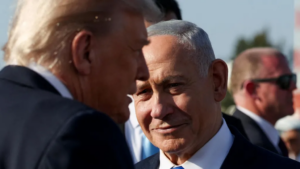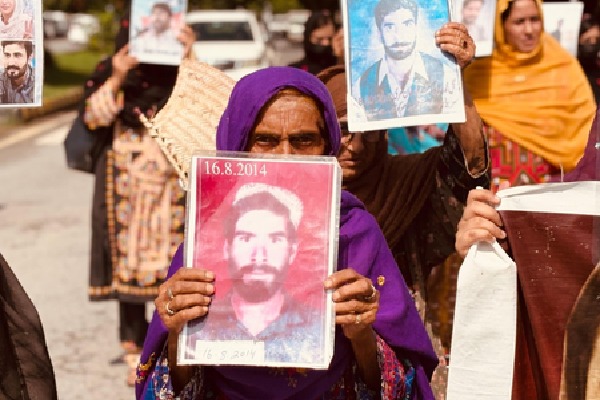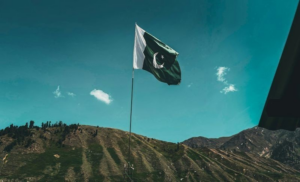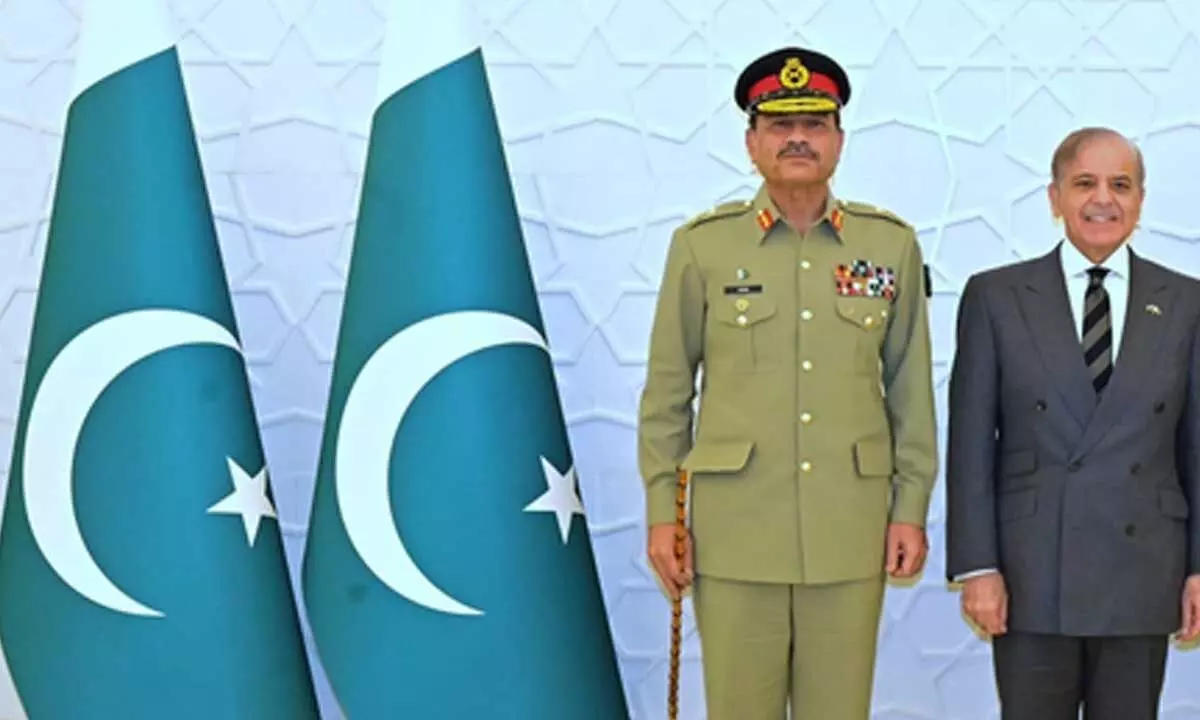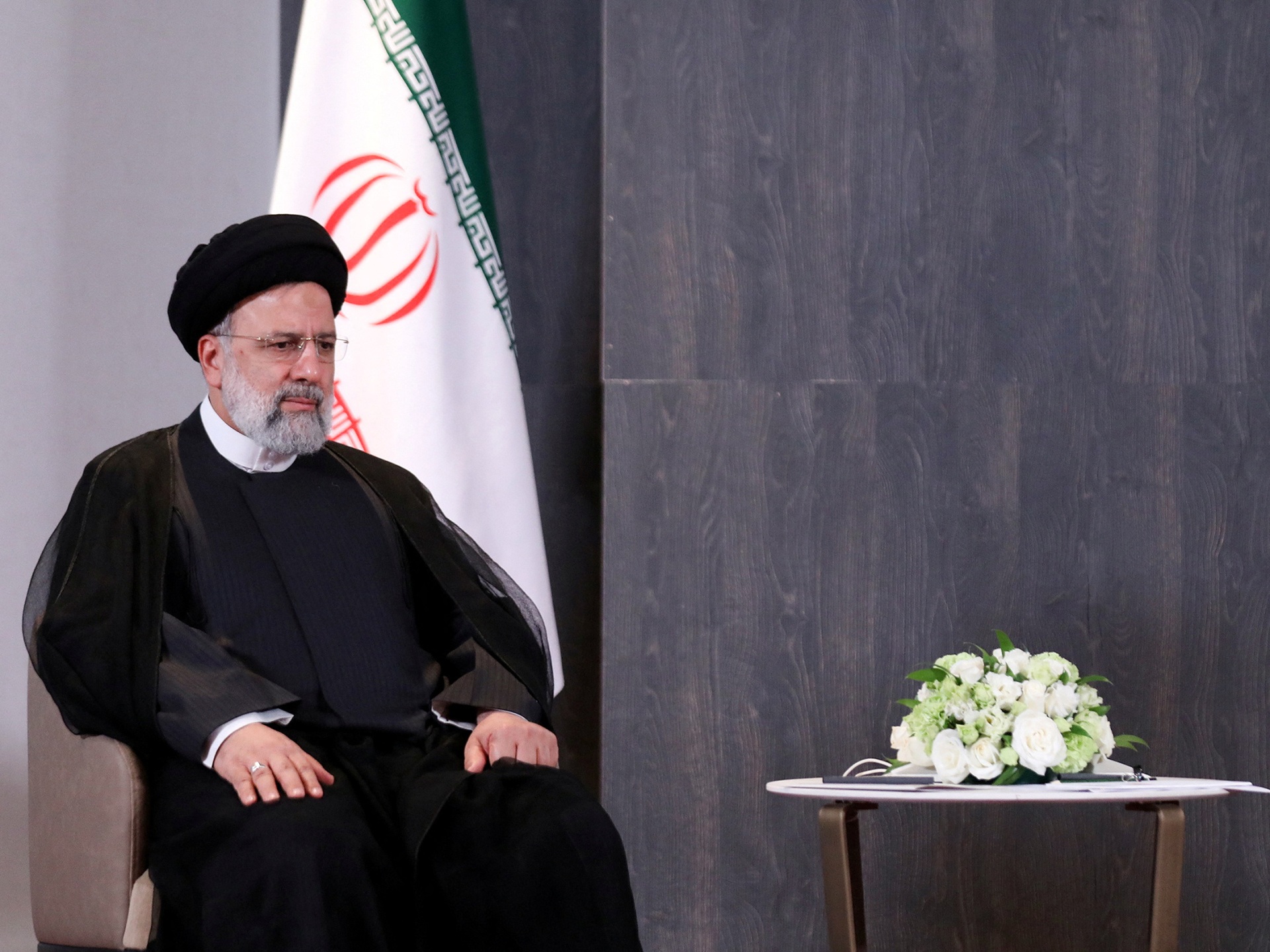
President Ebrahim Raisi tells Al Jazeera guarantees must be established to ensure the ‘lasting removal’ of sanctions on Iran.
Samarkand, Uzbekistan – Iranian President Ebrahim Raisi has said United States sanctions must be lifted to reach a nuclear agreement, and there must be guarantees established to ensure their “lasting removal”.
Speaking exclusively to Al Jazeera’s Resul Serdar in Uzbekistan, the Iranian president also said that it was not yet time to have face-to-face talks with the United States, and he questioned the sincerity of Washington in wanting to reach a deal with Tehran.
“Removal of sanctions should be accompanied with the resolution of safeguards. There are some political and baseless accusations against Islamic Republic of Iran when it comes to safeguard issues,” Raisi told Al Jazeera in the city of Samarkand, where he attended the Shanghai Cooperation Organisation meeting on Thursday.
“So, we should finalise these safeguard issues,” he said.
“Regarding the guarantees, if we have the trustworthy guarantees, and we have the lasting removal of the sanctions, not temporary removal of sanctions, and if there is a lasting solution for the safeguard issues, for sure it is possible to reach agreement,” the president said.
Months of indirect talks between Iran and US President Joe Biden’s administration to revive the 2015 Iran nuclear deal have hit a dead end.
Former US President Donald Trump withdrew from the 2015 deal under which Tehran had agreed to scale back its uranium enrichment programme and promised not to pursue nuclear weapons in return for the lifting of crippling sanctions, which also allowed Iran to sell its oil and gas worldwide.
The 2015 deal was signed in Vienna by the US, UK, France, Germany, Russia, China, the European Union, and Iran. The IAEA had repeatedly confirmed at the time that Tehran was meeting its nuclear commitments fully under the terms of the 2015 agreement.
‘American sincerity’
Al Jazeera’s Serdar said the Iranian president did not see any benefit in face-to-face meetings with US officials yet.
“He said that Iran has tried that before, has done that before, and it didn’t work out,” Serdar said.
“He also questioned American sincerity, the sincerity of the American approach to this issue. He said that if Americans want to finalise a deal, why do they impose new sanctions on Iran in the middle of the negotiations?”
The US recently imposed new sanctions on Iranian companies for helping transfer Iranian drones to Russia for use in Ukraine, as well as for an Iranian ministry accused of being involved in a cyberattack on Albania, an allegation that Iran has called baseless.
The IAEA said on September 7 that it was “not in a position to provide assurance that Iran’s nuclear programme is exclusively peaceful”.
Tehran has long maintained that its nuclear programme is focused on nuclear energy and not weapons.
Iran’s economy and people have been hit hard by decades of international sanctions.
A United Nations rapporteur published a report this week that detailed the effects of decades of embargoes on Iran and called for their removal. The report’s author, Alena Douhan, said that sanctions had affected nearly every aspect of life in Iran.
The provision of medicines and medical equipment to Iran was “severely undermined” by sanctions on finance, trade, shipping, insurance and over-compliance on the part of foreign businesses and suppliers, Douhan said.
“These constitute serious impediments to the enjoyment of the right to the highest attainable standard of health by all Iranians,” she said.
Sanctions have been imposed on Iran since 1979 when the country’s Islamic revolution took place.


